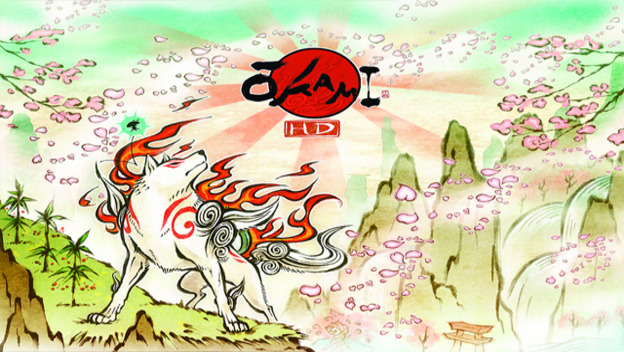Video game developers have been working on more than just our favorite titles lately; they’ve developed some bad habits. At-launch DLC, microtransactions taking priority over content completion, and overpriced peripherals are bad enough, but few things are as frequent and problematic as rereleasing old titles with a coat of charitably named HD paint. This has become so popular in the industry that I can safely call it a fad, and a damn annoying one at that.
HD releases started off as a relatively pure idea: Rerelease a fan-favorite series in a bundled format (typically two or three games) with some moderately revamped graphics and minor gameplay tweaks, and sell it for a reasonable price. Sounds good, right? I was certainly happy to hear that some of my favorite PlayStation 2 icons were going to make a current-gen debut. Unfortunately, what began as harmless fan service has devolved into one of the biggest cop-outs in the gaming industry. What’s worse is that it only serves to augment developer laziness by adding another option to the “Do-Nothing-and-Profit” business plan that so many seem to flock to.
The first and most prominent issue is a classic for any entertainment industry: Quantity over quality. Few “HD” releases actually deserve the label at all; “lackluster money-grab” is a more fitting description. Among the sea of these parasites, some of the worst include the Splinter Cell, Silent Hill, Zone of the Enders, and God of War collections. Apparently, the developers behind these had an interesting idea for HD releases. Though I doubt I can fully emulate their thoughtlessness, that idea was something like “What if, instead of upgrading the graphics and control schemes of these games, we filled them with technical problems and slapped them on a new disc?”
All four of those examples not only ignored the promise of improved graphics, but were riddled with frame-rate dips, audio lag, game-freezing glitches, and several hitches in control execution that weren’t present in the originals. Considering that the point of rereleasing titles in this way is to improve them, that’s absolutely pathetic.
Luckily, they aren’t all bad; there’ve been plenty of quality HD releases over the years. The PS2 platforming heroes were given due justice, as were Okami, the Killzone trilogy, and Metal Gear Solid, but even quality rereleases have their problems.
We’ve still got the age-old problem of diversity. New IPs are already low on the priority ladder for developers since most of them favor the safety of sequels, and the option of putting out titles that have already proven themselves successful knocks new franchises to the lowest rung. Now, obviously, there’s nothing wrong with sequels. Games usually get better as a series gets longer and is given more attention, and most storylines warrant more than one game worth of action. However, when emulation—or flat out redoing—overshadows innovation, there’s a problem.
Even if we don’t take that opinion-heavy issue into account, HD releases have had more than their share of blunders. For example, let’s pick on Killzone.
With the Helghan conquest already spread across the PlayStation 2, PSP, and PlayStation 3, it made sense to put the three core games on one system. So, the folks over at Guerrilla Games dug the original Killzone out of their data graveyard, gave it a fresh coat of HD paint, and pushed it out the door in a package that included the deluxe editions of Killzone 2 and 3. More accurately, one game was used to resell unchanged versions of games that are already available. Though I’m sure the marketing division had a collectively self-satisfied grin across their faces, Killzone fans—you know, the people who already owned the PlayStation 3 installments—got totally screwed when faced with the option of re-buying two games to see the original in HD glory (which was actually quite well done), or settling for the PS2 version.
And there are still more technical issues to be had, one of the most notorious being hard drive space. Many HD releases require you to allocate up to 5gbs of space per game for mandatory installations, and with the golden rule of three governing the bundles, you’re looking at around 15 gigs. That’s about 10% of my PS3’s hard drive (yes I’m rocking a 160gb; laugh at me) and is a total turnoff. Add that to the aforementioned hitches and glitches, and you’re looking at the most unappealing pile of high-def you’ve ever seen.

HD releases are a lot of things. They’re an opportunity for fans of a series to reminisce, an opportunity for new players to get into a franchise in its entirety, a means for developers to combat the used game market, and, more often than not, superfluous and annoying. Sadly, at this rate, the problems will soon outweigh the benefit of nostalgia. There are way too many of the things, hard drive space gets eaten like candy, the gaming market is becoming even more same-old-saturated, and, worst of all, classic titles are downright besmirched.
Graphics aren’t what made these games great, and I’m perfectly happy with my old school copies. I’m all for frame rate improvements, but not if I have to sacrifice playability to try for it. So, developers, do us all a favor; leave old franchises in the past and focus on how to make current games better.
But that’s just me asking. How about you, readers? Are you content with a handful of HD releases, or are you annoyed by how many there are? Maybe you want every franchise under the sun to see the glory of HD graphics? Let us know in the comments below.
| By Austin Wood Freelance Writer Date: February 14, 2013 |
